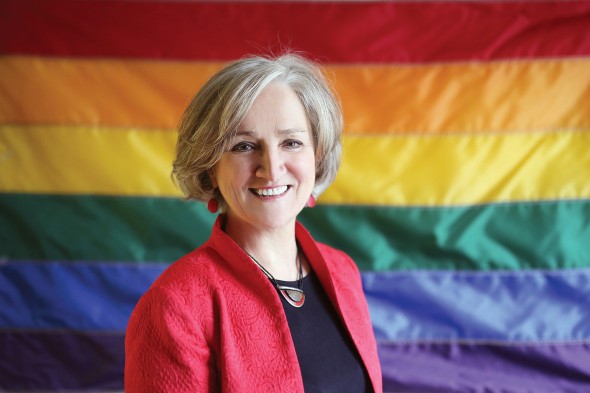Making strides in understudied area in women’s mental health
One name commonly comes up when discussing sexual minority health and substance abuse: Tonda Hughes.
Hughes is an internationally renowned researcher, having amassed more than $20 million in federal funds over more than 25 years to conduct her research on women’s mental health and substance use, with a particular emphasis on sexual minority women, an area identified by the Institute of Medicine as greatly understudied.
Her study of risk and protective factors for heavy drinking and drinking-related problems was the first study funded by the National Institutes of Health on sexual minority women’s drinking behaviors and related risk factors.
Now in its 17th year, the study is the longest-running and one of few longitudinal studies on sexual minority women’s health.
“Health disparities among sexual minorities have long been explained on the basis of excess stress resulting from being part of a marginalized and stigmatized population group,” said Hughes, professor and associate dean for global health in the College of Nursing. “However, our work on childhood victimization has begun to point to another potentially critical factor underlying these health disparities — mainly, the enduring impact of sexual and physical abuse into adulthood.”
Hughes’ research has provided opportunities for new investigators in the field. More than 25 graduate students and junior faculty members from nursing and other disciplines have used data from her studies to develop their own projects or programs of research. She has mentored numerous interdisciplinary scientists at universities throughout the U.S. and world.
Her contributions to lesbian/sexual minority women’s health have been recognized through myriad awards and honors.
Being selected as a University Scholar “is a tremendous honor for me personally, but I am also gratified by the recognition of the importance of research with sexual minority women, one of the most stigmatized groups throughout the world’s population,” Hughes said.
“We’ve come a long way in the nursing profession from the days when I and other junior faculty were advised by our well-meaning mentors not to focus our research on gay and lesbian people. I hope this award will serve to encourage young nurse scientists to follow their passion.”

